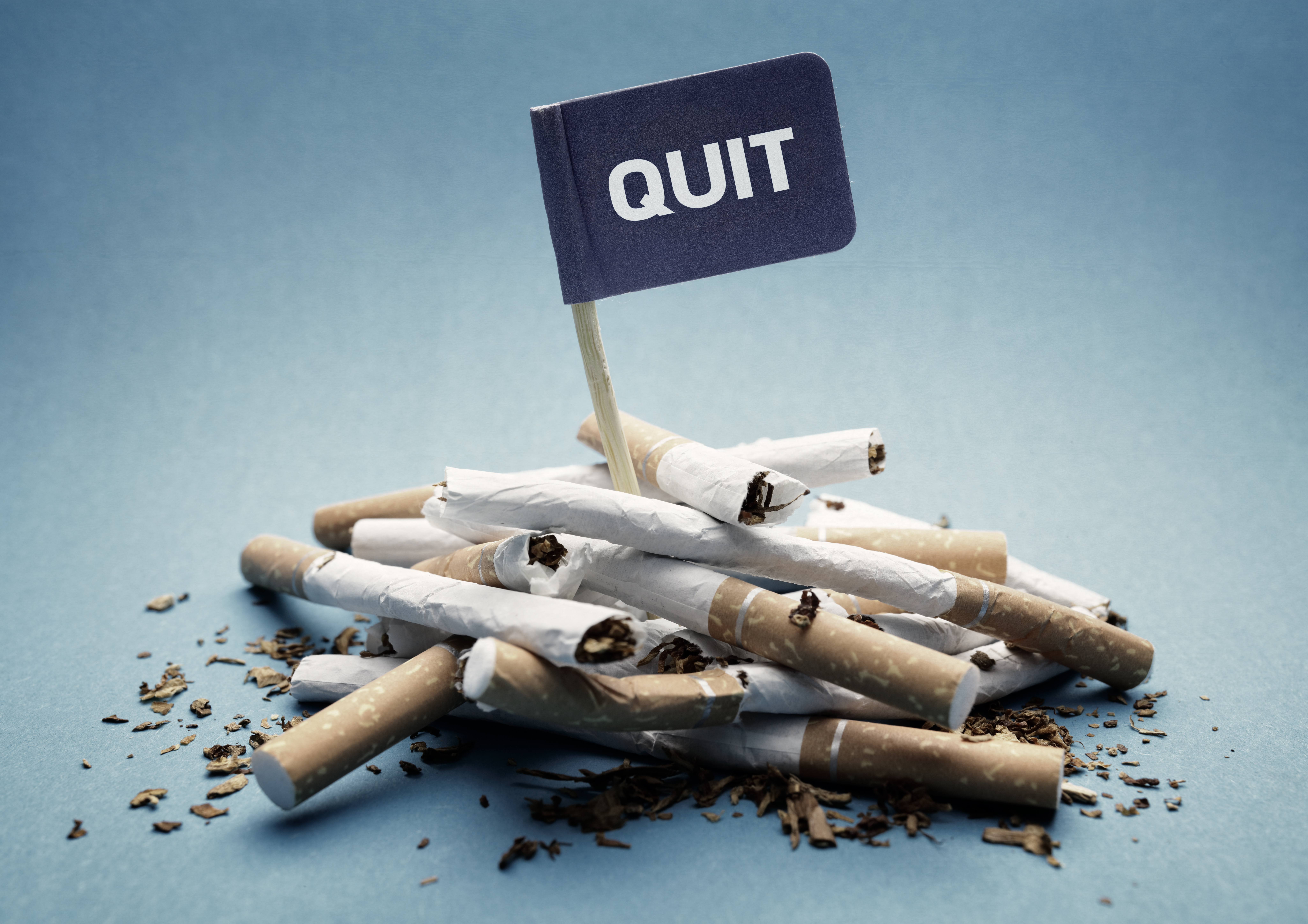Why Is It So Hard to Quit Smoking?

It’s no secret that smoking cigarettes is a dangerous habit. The amount of damage smoking can cause throughout the body should be enough to keep people away, but millions of people continue to smoke despite this knowledge. This is because once you start, it’s very difficult to quit. Even if smokers want to quit, and hate the way it tastes, smells, and feels, they usually struggle to kick the habit.
So why is it difficult to quit smoking? The short answer is: nicotine.
How Nicotine Affects You
Nicotine is a naturally occurring substance found in tobacco leaves. On its own, it’s addictive enough to keep you coming back for more. However, cigarette manufacturers put in additives to make nicotine even more addicting than it already is.
Nicotine affects the pleasure centres of your brain, mimicking the neurotransmitter called dopamine. This triggers the release of feel-good chemicals throughout your system, making your brain and body feel good. The more often your brain experiences these sensations, the more your brain gets used to them and associates feeling good with nicotine.
How Powerful is Nicotine Addiction?
Over time, nicotine even changes the way your brain works, making it think it needs nicotine to continue functioning properly. If you stop consuming nicotine, your brain will begin to crave the pleasure it once received from nicotine. These cravings will intensify, causing a condition known as nicotine withdrawal.
Nicotine withdrawal can be extremely uncomfortable and is the most common reason people go back to smoking cigarettes. No matter how much resolve a person may have to quit, the symptoms can be so life disrupting that they start puffing to put the symptoms at bay.
Nicotine withdrawal involves several different physical, mental, and emotional symptoms. The first week tends to be the worst, peaking at around days 3-5. This is the point where the nicotine has finally cleared out of your body. Its absence will start causing severe cravings, headaches, and you may also experience significant trouble sleeping.
Most relapses happen within the first two weeks of quitting because of nicotine withdrawal. If you can get over this period, the physical symptoms will start to become easier to deal with. It usually takes a few weeks for the symptoms to completely stop.
Symptoms of nicotine withdrawal include:
Irritability
Depression
Restlessness
Headache
Insomnia
Coughing
Constipation
Anxiety
Brain fog
General feeling of discomfort
Stop Smoking Services from Pearl Chemist Group
Studies have shown that the more support a person has in quitting smoking, the more likely they are to be successful. That’s why we offer comprehensive and personalised stop smoking services in Morden and other locations. With our advice and support, we can help you set and achieve your smoke-free goals. We can also provide you with stop smoking medications and smoking cessation aids to help you get over the initial withdrawal symptoms.
For stop smoking treatment in Banstead and stop smoking medication in Merton, visit Pearl Chemist Group’s website or contact us today.






